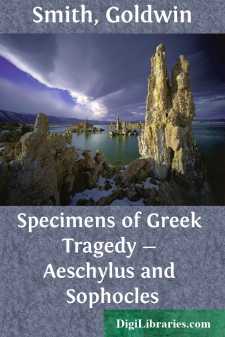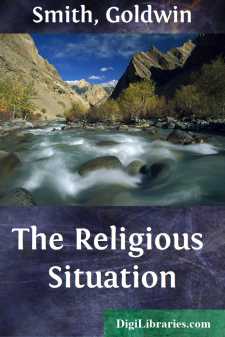Categories
- Antiques & Collectibles 13
- Architecture 36
- Art 48
- Bibles 22
- Biography & Autobiography 813
- Body, Mind & Spirit 142
- Business & Economics 28
- Children's Books 17
- Children's Fiction 14
- Computers 4
- Cooking 94
- Crafts & Hobbies 4
- Drama 346
- Education 46
- Family & Relationships 57
- Fiction 11829
- Games 19
- Gardening 17
- Health & Fitness 34
- History 1377
- House & Home 1
- Humor 147
- Juvenile Fiction 1873
- Juvenile Nonfiction 202
- Language Arts & Disciplines 88
- Law 16
- Literary Collections 686
- Literary Criticism 179
- Mathematics 13
- Medical 41
- Music 40
- Nature 179
- Non-Classifiable 1768
- Performing Arts 7
- Periodicals 1453
- Philosophy 64
- Photography 2
- Poetry 896
- Political Science 203
- Psychology 42
- Reference 154
- Religion 513
- Science 126
- Self-Help 84
- Social Science 81
- Sports & Recreation 34
- Study Aids 3
- Technology & Engineering 59
- Transportation 23
- Travel 463
- True Crime 29
Specimens of Greek Tragedy - Aeschylus and Sophocles
by: Goldwin Smith
Description:
Excerpt
PREFACE.
Greek drama, forerunner of ours, had its origin in the festival of Dionysus, god of wine, which was celebrated with dance, song, and recitative. The recitative, being in character, was improved into the Drama, the chief author of the improvement, tradition says, being Thespis. But the dance and song were retained, and became the Chorus, that peculiar feature of the Greek play. This seems to be the general account of the matter, and especially of the combination of the lyric with the dramatic element, so far as we can see through the mist of an unrecorded age.
Thirlwall, still perhaps the soundest and most judicious, though not the most vivid or enthusiastic, historian of Greece, traces the origin of the Drama to "the great choral compositions uniting the attractions of music and action to those of a lofty poetry, which formed the favourite entertainment of the Dorian cities." This, he says, appears to have been the germ out of which, by the introduction of a new element, the recitation of a performer who assumed a character and perhaps from the first shifted his mask, so as to exhibit the outlines of a simple story in a few scenes parted by the intervening song of the Chorus, Thespis and his successors unfolded the Attic Tragedy. Of the further development of the Drama in the age of Pericles, Thirlwall says:—
"The drama was the branch of literature which peculiarly signalised the age of Pericles; and it belongs to the political, no less than to the literary, history of these times, and deserves to be considered in both points of view. The steps by which it was brought through a series of innovations to the form which it presents in its earliest extant remains, are still a subject of controversy among antiquarians; and even the poetical character of the authors by whom these changes were effected, and of their works, is involved in great uncertainty. We have reason to believe that it was no want of merit, or of absolute worth, which caused them to be neglected and forgotten, but only the superior attraction of the form which the drama finally assumed. Of Phrynichus in particular, the immediate predecessor of Aeschylus, we are led to conceive a very favourable opinion, both by the manner in which he is mentioned by the ancients who were acquainted with his poems, and by the effect which it is recorded to have produced upon his audience. It is clear that Aeschylus, who found him in undisputed possession of the public favour, regarded him as a worthy rival, and was in part stimulated by emulation to unfold the capacities of their common art by a variety of new inventions. These, however, were so important as to entitle their author to be considered as the father of Attic tragedy. This title he would have deserved, if he had only introduced the dialogue, which distinguished his drama from that of the preceding poets, who had told the story of each piece in a series of monologues. So long as this was the case, the lyrical part must have created the chief interest; and the difference between the Attic tragedy and the choral songs which were exhibited in a similar manner in the Dorian cities was perhaps not so striking as their agreement....






